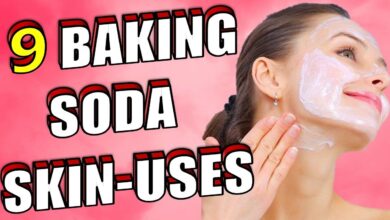Known for its anti-inflammatory properties, Frankincense oil is gentle on the skin and goes with most skin types. It naturally heals wounds and reduces scarring. An ideal option for popped zits and inflamed pimples; Frankincense oil soothes skin and balances the production of sebum.
It also provides relief from dry, irritated skin and treats inflamed acne. The boswellic acid kills the bacteria associated with acne and prevents further acne formation on the skin.
Can I Use Frankincense Oil Directly on My Skin?
Frankincense essential oil is mild in nature and most people apply a few drops directly on the skin without having to face any side effects. However, if your skin is sensitive and reacts immediately to foreign chemicals, you can use Frankincense essential oil with carrier oils such as fractioned coconut oil, almond oil, jojoba oil, olive oil, or grapeseed oil.
You must not apply the oil anywhere close to your eyes as the vapors may irritate the eyes and the area around it.
If you experience burning, tingling or irritation from Frankincense oil, contact your caregiver.

Is It Safe to Ingest Frankincense Essential Oil?
While a lot of essential oil companies claim that the ingestion of Frankincense oil is healthy for a wide variety of health-related concerns, the evidence is still lacking. Besides claims and promises, there is no factual evidence that supports the safety and efficacy of ingesting Frankincense essential oil to treat ailments.
However, if you do still ingest this essential oil, be sure it is pure and bought from a trustworthy retailer. Carefully follow the manufacturer’s directions and book an appointment with your doctor to weigh out the pros and cons and test for allergies before use.
What are the Possible Side Effects of Frankincense Essential Oil?
Although the research on Frankincense oil is still lacking, ingesting it may result in toxic effects on the human body. Unless you are advised by a doctor to do so, do not ingest Frankincense essential oil, especially undiluted.
The topical application of Frankincense essential oil can cause an allergic reaction on the skin. As a result, the skin gets inflamed, you develop rashes, and the condition gets worse. The best way to ensure nothing as such happens is to do a patch test before applying any essential oil on your face.
No matter how gentle, essential oils, including Frankincense, are potent extracts, and must not be used on the skin undiluted. It is best to contact your caregiver and have them rule out possible allergies before application. It is extremely important for pregnant women and nursing moms to get a second opinion from their health care providers before using essential oil.
Moreover, never self-treat a medical condition with Frankincense or any other essential oil without discussing it with your doctor first or by delaying your doctor’s visit. This sort of neglect can result in serious consequences for you.
The Bottom Line
In recent years, Frankincense essential oil has gained a lot of attention due to its anti-inflammatory and anti-aging properties. It treats inflamed acne, disinfects the skin, and prevents more acne pimples from popping up on your skin. The research is still in progress and not many claims are supported by scientific backing, yet the popularity garnered by Frankincense only continues to increase.
However, before applying Frankincense oil on your acne-prone skin, it is best to have a chat with your dermatologist. They can help identify underlying skin conditions like eczema, rosacea, or psoriasis and rule out possible allergies.




